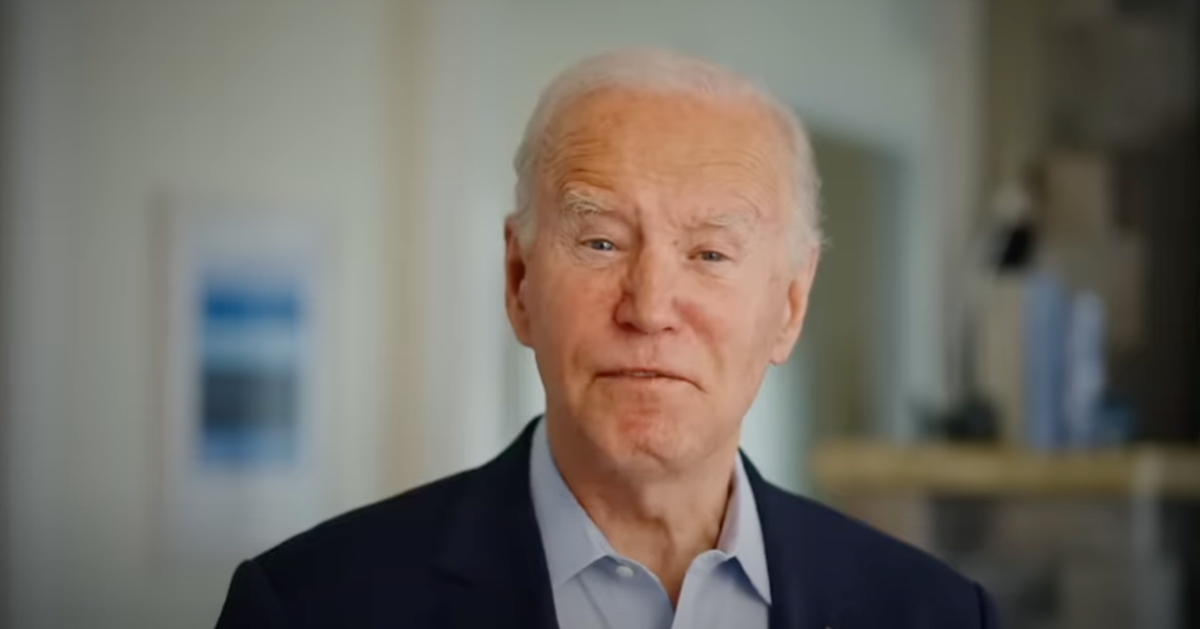RFK Jr. Claims DNC Unfairly Favors Harris in Election Nomination Process
Independent third-party candidate Robert F. Kennedy Jr. has leveled serious accusations against the Democratic National Committee (DNC), alleging that the party is attempting to manipulate the nominating process to ensure Vice President Kamala Harris becomes the Democratic nominee.
President Joe Biden's unexpected announcement that he will not seek re-election has set off a chain of significant political developments, including Kennedy's claims of rigging by Democratic Party officials, as Breitbart reports.
Biden Chooses Not to Seek Re-Election
In a surprising move that echoes historical decisions, Biden announced on Sunday that he would not be seeking re-election. This decision mirrors that of Lyndon Baines Johnson in 1968.
Biden articulated that his decision was in the best interest of both his party and the country. He stated that his focus would remain on fulfilling his duties as the sitting President.
The political landscape shifted dramatically after Biden endorsed Vice President Kamala Harris as the future Democratic Party standard-bearer.
Democrats quickly rallied in support of Harris, celebrating the continuity in leadership.
RFK Jr.'s Strong Accusation Against the DNC
However, Robert F. Kennedy Jr. wasn't as enthusiastic about the unfolding events.
Kennedy has criticized the DNC of attempting to "rig" the election for Kamala Harris. According to Kennedy, the DNC had concealed Biden’s health issues from the public.
The independent presidential hopeful commended Biden for stepping down, remarking on what he called the president’s "infirmities" as evidence of his progressive deterioration. He claimed that this decline prompted his own candidacy to ensure voters had a viable alternative to Donald Trump.
Controversial Claims Around Democratic Processes
Kennedy has called on the Democratic Party to return to its democratic roots. He urged the party to use neutral polling to identify the most viable candidate capable of defeating Donald Trump.
He advocates for a nominee selection process driven by delegates based on these polling results. Kennedy argues that a fair and democratic process would have prevented his need to leave the Democratic Party.
Historical Parallels and Political Ramifications
The weight of Biden’s decision cannot be overstated. Comparisons to Lyndon Baines Johnson's 1968 decision highlight its historical significance. Johnson’s decision not to seek re-election came amid intense political and social turmoil, a backdrop not entirely dissimilar to today’s climate.
Biden’s exit from the race reshapes the Democratic landscape. His endorsement of Harris adds another layer of complexity to the political dynamic within the party. Kennedy's allegations suggest that party elites are maneuvering to install a candidate perceived as "monumentally unpopular."
Reactions and Future Implications
As the Democrats unify behind Harris, Kennedy’s accusations cast a shadow over the intra-party dynamics. He claimed that the DNC's actions were meant to "disable democracy" and manipulate the process in favor of Harris.
Kennedy asserted, “Many Americans fear that the same DNC elites are about to rig the nominating process again." His call for using neutral polling stands as a challenge to the current trajectory of the Democratic Party’s nomination process.
Biden's Continued Focus on Presidency
Biden's declaration to focus on his remaining term as president underscores his commitment to his current duties.
“It has been the greatest honor of my life to serve as your President," Biden expressed. His decision marks a pivotal shift in his political journey and the Democratic Party’s strategy moving forward.
Broader Concerns Remain
Adding fuel to the fire, Kennedy voiced concerns over the lack of primary debates between himself and Biden. This absence, according to him, undermined the democratic process within the party.
Kennedy’s frustrations reflect broader concerns among some party members and voters who feel sidelined by top-down decisions. His departure from the Democratic Party signifies a deeper rift and a call for more transparent and inclusive processes.





